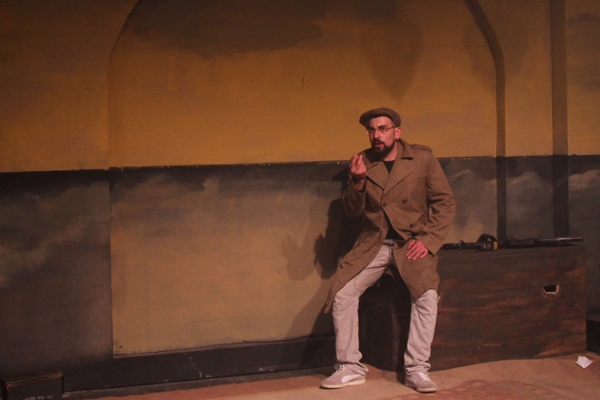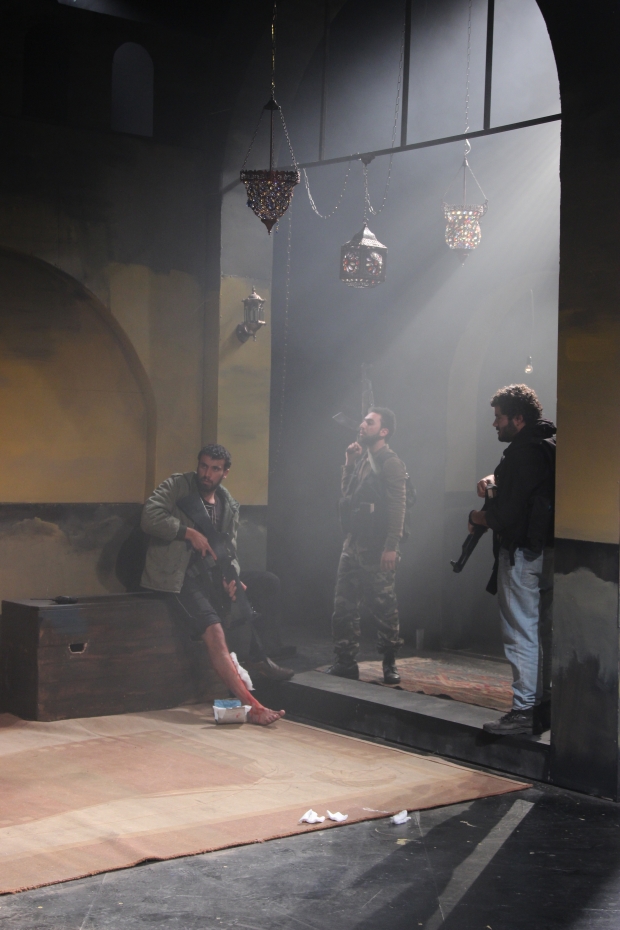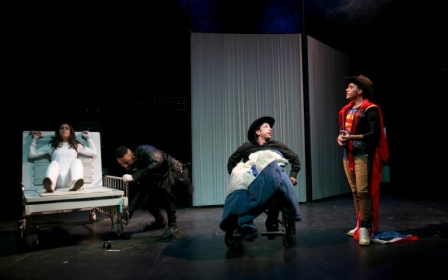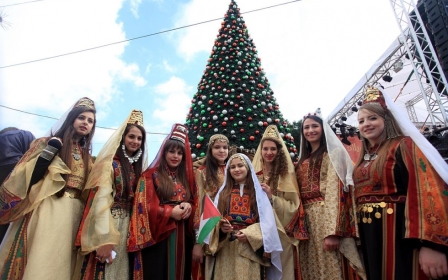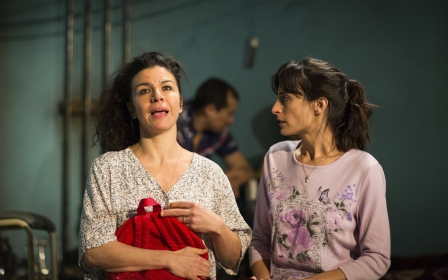REVIEW: The Siege
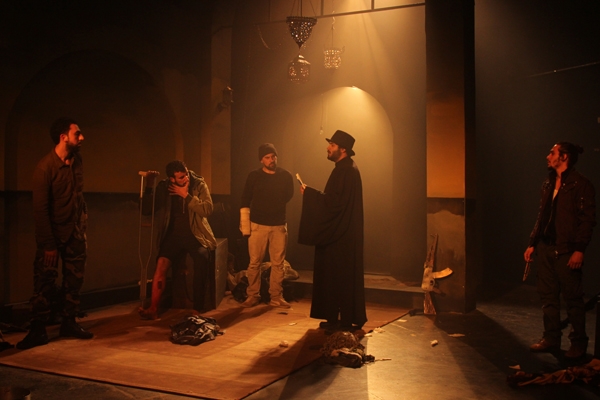
Whoever believes that theatre is a redundant art form needs to see The Siege.
The Freedom Theatre of Palestine’s new production, about the 39-day standoff at the Church of the Nativity in Bethlehem during the second intifada, has a deceptively light start, with an engaging Palestinian tour guide thanking the audience for joining him on a tour.
The church-like set, including ornate lanterns, incense smoke and haunting Orthodox chants, effectively places us in Christianity’s holiest of religious sites.
The guide, played with infectious enthusiasm by Ahmed Tobasi, cracks jokes, tells us about his faith, and the fact that the Palestinians who built the church under Emperor Constantine in the 4th century are the same as those living in Palestine today. “Are you ready to start?” he asks. “Come on, we’re going to see Jesus.”
Suddenly shots are fired and to a pulsing soundtrack four fighters armed with M16s and AK47s enter stage. An Israeli army loudspeaker and projected video footage of tanks and Israeli troops outside the church – taken from the real siege during Israel’s West Bank invasion of 2002 – immerse us in a state of mortal threat. The fighters are shouting and arguing about what to do, one is bleeding heavily from a wound to the leg. The priest demands to know what they are doing here, but a church is a sanctuary - they immediately offer to leave, but he lets them stay.
This is war and resistance at its most visceral and terrifying.
The symbolism of the events and location of the siege during the Israeli Defensive Shield invasion of Bethlehem are rich in drama, happening in the very spot where Jesus led his own quixotic resistance to an overwhelmingly powerful occupier 2000 years before. Among the fighters there are Muslim and Christians, but they pray and stand together.
Watching – or rather experiencing – The Siege, written by Freedom Theatre's Nabil Al-Raee, who co-directs with Zoe Lafferty, seems to stretch and expand what theatre can do, blurring the line between art and a lived reality of human beings in extremis. Over an unbroken 85 minutes, we share the hurt, pain, hopes, humour and dreams of these men, who, in the end, are only here in the most unlikely of holdouts, because they want to live in dignity in their own land. It's a straightforward, simple telling. There are no gimmicks, narrative or point-of-view sleights of hand.
The Siege emerged from extended conversations with the exiled fighters who had to leave for Europe in the deal brokered by the EU to end the siege. It is a heart-wrenching, profound shout from the heart of the occupation, down to the little things that people hold onto when they are pushed to the edge, when they are hungry and trapped with nothing but their joint commitment not to be crushed by the occupier. Songs, jokes, a game of chequers, describing in detail how they would make maqlouba – the Palestinian staple - or the perfect coffee, which they savour and share, even though in reality it is just a cup of water.
The actors, three of whom - Ahmad al Rokh, Faisal Abu Alheja and Tobasi - are from Jenin refugee camp, stand in a line before us, telling us what happened. Is this acting, or testament? It is their truth, they lived it.
Occasionally a mobile phone rings from family members outside, reminding us we are in the 21st century. In an oddly hilarious scene, the Israeli army have a mother of one of the fighters (Hassan Taha) on a loudspeaker. They want her to tell her son to surrender, but she refuses. Instead, she tells this grown man: “I swear I will cut off my breast... I will disown you.” He is, unsurprisingly, distraught and wants to go out in a suicidal blaze of fury.
The actors to a man, without any visible artifice, reveal in all their humanity the character of these men - at turns bewildered, terrified, fragile, brave, at odds with one another, united in resistance. They do not represent all of those who experienced the siege, which included monks and nuns and two hundred civilians sheltering from the Israeli offensive, but through the fighters’ story, we understand something of the struggle and the spirit of the Palestinian people under occupation.
The Freedom Theatre have triumphed with The Siege and, with the tour of the UK, they may light a fire of empathy among their audiences who will go home having briefly got to know the Palestinians of Bethlehem and be inspired by this act of cultural resistance.
* The Siege continues its tour of the UK. BAC London till 23 May; The Hub, Leeds, 26 May; St Mary in the Castle, Hastings, 28 May; The Merlin, Frome, 30 May; REP, Birmingham, 4-6 June; Nottingham Playhouse, 10-11 June; The Cut, Halesworth, 13 June; The Tron, Glasgow, 17-20 June.
Middle East Eye propose une couverture et une analyse indépendantes et incomparables du Moyen-Orient, de l’Afrique du Nord et d’autres régions du monde. Pour en savoir plus sur la reprise de ce contenu et les frais qui s’appliquent, veuillez remplir ce formulaire [en anglais]. Pour en savoir plus sur MEE, cliquez ici [en anglais].


